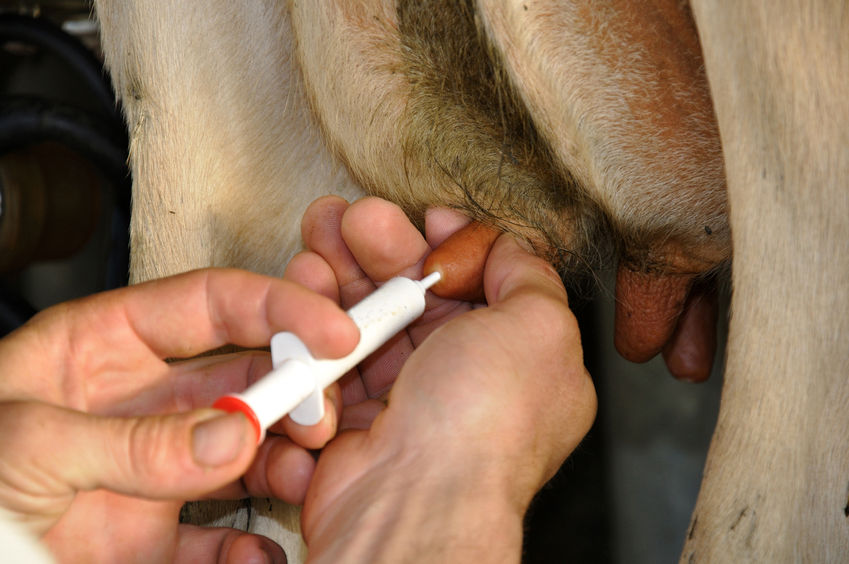
US farm antibiotic use is now more than twice as high per animal as it is in the UK, according to new analysis.
Fresh analysis published by the food and farming alliance Sustain indicates that total US sales of medically important antibiotics for use in animals increased by 26% between 2009 and 2015.
By contrast, the UK government recently reported a 27% drop in use of antibiotics in animals reared on British farms over the last two years.
The analysis has also warned against a "flooding" of the British market with antibiotic-packed chicken from the US.
Indeed, British poultry industry leaders have said they are "very concerned" about a United States suggestion that the UK will have to accept the likes of chlorinated chicken and other inferior produce to secure a trans-Atlantic free trade deal.
The UK farming industry has taken huge improvements of improving antibiotic use. According to Defra, Veterinary Medicines Directorate, and Department of Health, sales of antibiotics for use in animals in the UK have fallen to their lowest level since records began, exceeding a government target to combat the threat of antibiotic resistance (AMR) two years early.
In the UK, the focus is more on reducing the risks of contamination along the supply chain, meaning less overall reliance on, for instance, profligate use of antibiotics, which is an issue of international health concern.
Routine use
Sustain's analysis says that US farmers and meat processors routinely use antibiotics, chlorine rinses and irradiation to reduce food-poisoning bugs in meat.
However, health campaigners argue these carry their own risks and often mask poor welfare and hygiene standards on farms, in slaughterhouses and in meat processing.
The World Health Organization (WHO) recently called on farmers and the food industry to stop routinely using antibiotics prophylactically in healthy animals. This is to preserve the effectiveness for treatment of actual disease outbreaks in humans and animals.
“When US Commerce Secretary Wilbur Ross told the CBI last week that the UK would have to accept US meat standards, I was horrified. Mass-produced American chicken may seem cheap, but it comes at a gigantic cost to our health, animals and workers,” said Kath Dalmeny, Chief Executive of Sustain.
“British food and farming industries have started to take action on the critically important issue of overuse of antibiotics in farming. We simply cannot afford to let our trade negotiators sweep such progress aside by flooding our market with cut-price US chicken raised with routine antibiotic use.
“If antibiotics lose their efficacy through over-use in medicine and farming, we will return to an era when millions of lives could be lost every year to simple infections. All food and trade policy must reinforce international efforts to reduce antibiotic use, not create new markets for farmers – such as those in the US – who are using much more than they should.”
'No serious plans'
Cóilín Nunan, Scientific Adviser to the Alliance to Save Our Antibiotics adds how Brexit and the wider issues of international trade deals will have an impact on the issue.
“We need to consider what pressure UK regulators will come under - and what farming practices we may be supporting internationally – as a result of international trade deals. Many European countries, including the UK, are starting to phase out routine preventative use and to significantly cut overall antibiotic use,” he said.
“There is even the real possibility of an EU-wide ban on routine preventative use in the next few years. In contrast, the United States still has no serious plans to deal with antibiotic abuse in farming and use is increasing every year. Antimicrobial-resistant bacteria are no respecters of country borders.”
“Rather than the UK adopting US standards, we need to call on the US to show some leadership on reducing the use of antibiotics in animals through improvements in production systems and animal husbandry. This is in everyone’s interests.”
Speedy trade deal
The new comparison of farm antibiotic use data comes as the Government enters trade talks with the US, in which the Americans are expected to argue strongly in favor of the UK abandoning EU food standards in order to secure a speedy trade deal.
But a House of Lords report from July flagged that domestic producers fear the market being flooded with cheaper, lower welfare imports that will make it difficult for them to compete.
Earlier this month as part of World Antibiotic Awareness Week, FoodIngredientsFirst reported how The Alliance to Save our Antibiotics is calling for reductions to farm antibiotic use across the EU and for an end to routine preventative medication of groups of animals.
Its new report discloses which UK supermarkets routinely use antibiotics in their meat production.
